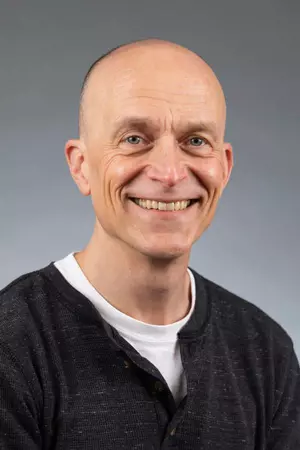Andreas Madlung is professor in the Department of Biology at the University of Puget Sound. A plant biologist by training, for the past three decades Professor Madlung’s work has focused on how plants respond to their surroundings, their behavior in stressful conditions, and in particular their use of light receptors to orient themselves in time and space.
Born in Hamburg in what was formerly West Germany, Madlung grew up in a family that was divided between east and west by the Cold War. He witnessed first-hand the difficulties of maintaining family ties across the Iron Curtain and traveled extensively in Germany before, during, and after the fall of the Berlin Wall. During the 2023–2024 academic year Madlung lived in Berlin, where he conducted research.
His longstanding scholarly pursuits explore how organisms, particularly plants, deal with changing environments both on the cellular as well as the whole organism level. Living in Berlin inspired Madlung to take a closer look at the intertwined nature of plants, animals, and humans in a modern city that is uniquely shaped by its Cold War past, and in which the city’s inhabitants take an extraordinarily active part in shaping its ecology.
Madlung has published extensively with undergraduate researchers, postdocs, and technicians from his laboratory at Puget Sound. His research has been funded by the U.S. National Science Foundation and the Murdock Charitable Trust.







